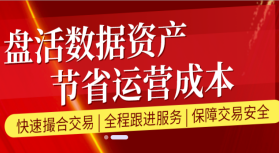关于本站
人大经济论坛-经管之家:分享大学、考研、论文、会计、留学、数据、经济学、金融学、管理学、统计学、博弈论、统计年鉴、行业分析包括等相关资源。
经管之家是国内活跃的在线教育咨询平台!
经管之家新媒体交易平台
提供"微信号、微博、抖音、快手、头条、小红书、百家号、企鹅号、UC号、一点资讯"等虚拟账号交易,真正实现买卖双方的共赢。【请点击这里访问】
统计
- 统计学 | 医学统计学与SPSS ...
- 统计学 | 统计学的世界
- 统计学 | 人工智能本质是统 ...
- 统计学 | 统计学读硕士就去 ...
- 统计学 | 统计学要学哪些课 ...
- 统计学 | 如何学习统计学
- 统计学 | 金融统计学 第2版 ...
- 统计学 | 湖南商学院北津学 ...
TOP热门关键词
免费学术公开课,扫码加入 |
Chapter 1
Problems and Applications
1. a. A family deciding whether to buy a new car faces a tradeoff between the cost of the car and other things they might want to buy.For example, buying the car might mean they must give up going on vacation for the next two years.So the real cost of the car is the family's opportunity cost in terms of what they must give up.
b. For a member of Congress deciding whether to increase spending on national parks, the tradeoff is between parks and other spending items or tax cuts.If more money goes into the park system, that may mean less spending on national defense or on the police force.Or, instead of spending more money on the park system, taxes could be reduced.
c. When a company president decides whether to open a new factory, the decision is based on whether the new factory will increase the firm's profits compared to other alternatives.For example, the company could upgrade existing equipment or expand existing factories.The bottom line is: Which method of expanding production will increase profit the most?
d. In deciding how much to prepare for class, a professor faces a tradeoff between the value of improving the quality of the lecture compared to other things she could do with her time, such as working on additional research.
2. When the benefits of something are psychological, such as going on a vacation, it isn't easy to compare benefits to costs to determine if it's worth doing.But there are two ways to think about the benefits.One is to compare the vacation with what you would do in its place.If you didn't go on vacation, would you buy something like a new set of golf clubs?Then you can decide if you'd rather have the new clubs or the vacation.A second way is to think about how much work you had to do to earn the money to pay for the vacation; then you can decide if the psychological benefits of the vacation were worth the psychological cost of working.
3. If you are thinking of going skiing instead of working at your part-time job, the cost of skiing includes its monetary and time costs, plus the opportunity cost of the wages you're giving up by not working.If the choice is between skiing and going to the library to study, then the cost of skiing is its monetary and time costs plus the cost to you of getting a lower grade in your course.
4. If you spend $100 now instead of investing it for a year and earning 5 percent interest, you are giving up the opportunity to spend $105 a year from now.The idea that money has a time value is the basis for the field of finance, the subfield of economics that has to do with prices of financial instruments like stocks and bonds.
5. The fact that you've already sunk $5 million isn't relevant to your decision anymore, since that money is gone.What matters now is the chance to earn profits at the margin.If you spend another $1 million and can generate sales of $3 million, you'll earn $2 million in marginal profit, so you should do so.You are right to think that the project has lost a total of $3 million ($6 million in costs and only $3 million in revenue) and you shouldn't have started it.That's true, but if you don't spend the additional $1 million, you won't have any sales and your losses will be $5 million.So what matters is not the total profit, but the profit you can earn at the margin.In fact, you'd pay up to $3 million to complete development; any more than that, and you won't be increasing profit at the margin.
6. Harry suggests looking at whether productivity would rise or fall.Productivity is certainly important, since the more productive workers are, the lower the cost per gallon of potion.Harry wants to look at average cost.But both Harry and Ron are missing the other side of the equation¾revenue.A firm wants to maximize its profits, so it needs to examine both costs and revenues.Thus, Hermione is right¾it’s best to examine whether the extra revenue would exceed the extra costs.In addition, Hermione is the only one who’s thinking at the margin.
7. a. Since a person gets fewer after-tax Social Security benefits the greater is his or her income, there's an incentive not to save for retirement.If you save a lot, your income will be higher, and you won't get as much after-tax Social Security income as someone who didn't save as much.The unintended consequence of the taxation of Social Security benefits is to reduce saving; yet the Social Security system arose because of worries that people wouldn’t save enough for retirement.
b. For the same reason, you'll tend not to work (or not work as much) after age 65.The more you work, the lower your after-tax Social Security benefits will be.Thus the taxation of Social Security benefits discourages work effort after age 65.
8. a. When welfare recipients who are able to work have their benefits cut off after two years, they have greater incentive to find jobs than if their benefits were to last forever.
b. The loss of benefits means that someone who can't find a job will get no income at all, so the distribution of income will become less equal.But the economy will be more efficient, since welfare recipients have a greater incentive to find jobs.Thus the change in the law is one that increases efficiency but reduces equity.
9. By specializing in each task, you and your roommate can finish the chores more quickly. If you divided each task equally, it would take you more time to cook than it would take your roommate, and it would take him more time to clean than it would take you.By specializing, you reduce the total time spent on chores.
Similarly, countries can specialize and trade, making both better off.For example, suppose it takes Spanish workers less time to make clothes than French workers, and French workers can make wine more efficiently than Spanish workers.Then Spain and France can both benefit if Spanish workers produce all the clothes and French workers produce all the wine, and they exchange some wine for some clothes.
10. a. Being a central planner is tough!To produce the right number of CDs by the right artists and deliver them to the right people requires an enormous amount of information.You need to know about production techniques and costs in the CD industry.You need to know each person's musical tastes and which artists they want to hear.If you make the wrong decisions, you'll be producing too many CDs by artists that people don't want to hear, and not enough by others.
b. Your decisions about how many CDs to produce carry over to other decisions.You have to make the right number of CD players for people to use.If you make too many CDs and not enough cassette tapes, people with cassette players will be stuck with CDs they can't play.The probability of making mistakes is very high.You will also be faced with tough choices about the music industry compared to other parts of the economy.If you produce more sports equipment, you'll have fewer resources for making CDs.So all decisions about the economy influence your decisions about CD production.
11. a. Efficiency:The market failure comes from the monopoly by the cable TV firm.
b. Equity
c. Efficiency:An externality arises because secondhand smoke harms nonsmokers.
d. Efficiency:The market failure occurs because of Standard Oil's monopoly power.
e. Equity
f. Efficiency:There's an externality because of accidents caused by drunk drivers.
12. a. If everyone were guaranteed the best health care possible, much more of our nation's output would be devoted to medical care than is now the case.Would that be efficient?If you think that currently doctors form a monopoly and restrict health care to keep their incomes high, you might think efficiency would increase by providing more health care.But more likely, if the government mandated increased spending on health care, the economy would be less efficient because it would give people more health care than they would choose to pay for.From the point of view of equity, if poor people are less likely to have adequate health care, providing more health care would represent an improvement.Each person would have a more even slice of the economic pie, though the pie would consist of more health care and less of other goods.
b. When workers are laid off, equity considerations argue for the unemployment benefits system to provide them with some income until they can find new jobs.After all, no one plans to be laid off, so unemployment benefits are a form of insurance.But there’s an efficiency problem¾why work if you can get income for doing nothing?The economy isn’t operating efficiently if people remain unemployed for a long time, and unemployment benefits encourage unemployment.Thus, there’s a tradeoff between equity and efficiency.The more generous are unemployment benefits, the less income is lost by an unemployed person, but the more that person is encouraged to remain unemployed. So greater equity reduces efficiency.
13. Since average income in the United States has roughly doubled every 35 years, we are likely to have a better standard of living than our parents, and a much better standard of living than our grandparents.This is mainly the result of increased productivity, so that an hour of work produces more goods and services than it used to.Thus incomes have continuously risen over time, as has the standard of living.
14. If Americans save more and it leads to more spending on factories, there will be anincrease in production and productivity, since the same number of workers will have more equipment to work with.The benefits from higher productivity will go to both the workers, who will get paid more since they're producing more, and the factory owners, who will get a return on their investments.There's no such thing as a free lunch, though, because when people save more, they're giving up spending.They get higher incomes at the cost of buying fewer goods.
15. a. If people have more money, they're probably going to spend more on goods and services.
b. If prices are sticky, and people spend more on goods and services, then output may increase, as producers increase output to meet the higher demand rather than raising prices.
c. If prices can adjust, then people's higher spending will be matched with increased prices, and output won't rise.
16. To make an intelligent decision about whether to reduce inflation, a policymaker would need to know what causes inflation and unemployment, as well as what determines the tradeoff between them.Because prices are sticky, an attempt to reduce inflation will lead to higher unemployment.A policymaker thus faces a tradeoff between the benefits of lower inflation compared to the cost of higher unemployment.
免流量费下载资料----在经管之家app可以下载论坛上的所有资源,并且不额外收取下载高峰期的论坛币。
涵盖所有经管领域的优秀内容----覆盖经济、管理、金融投资、计量统计、数据分析、国贸、财会等专业的学习宝库,各类资料应有尽有。
来自五湖四海的经管达人----已经有上千万的经管人来到这里,你可以找到任何学科方向、有共同话题的朋友。
经管之家(原人大经济论坛),跨越高校的围墙,带你走进经管知识的新世界。
扫描下方二维码下载并注册APP

您可能感兴趣的文章
本站推荐的文章
- 管理学 | 管理学理论在实际运用中为什么会 ...
- 管理学 | 财务管理学
- 管理学 | 管理学论文
- 管理学 | 中级管理管理学
- 管理学 | 罗宾斯管理学笔记 背诵版
- 管理学 | 终于找到管理学 13th
- 工商管理 | 工商管理专业考acca是不是很难
- 工商管理 | 求教,想要经济学考研,本科自考 ...
人气文章
本文标题:微观经济学CH1答案英文(陆续补充发贴,goooogle)
本文链接网址:https://bbs.pinggu.org/jg/jingji_weiguanjingjixue_2304028_1.html
2.转载的文章仅代表原创作者观点,与本站无关。其原创性以及文中陈述文字和内容未经本站证实,本站对该文以及其中全部或者部分内容、文字的真实性、完整性、及时性,不作出任何保证或承若;
3.如本站转载稿涉及版权等问题,请作者及时联系本站,我们会及时处理。



